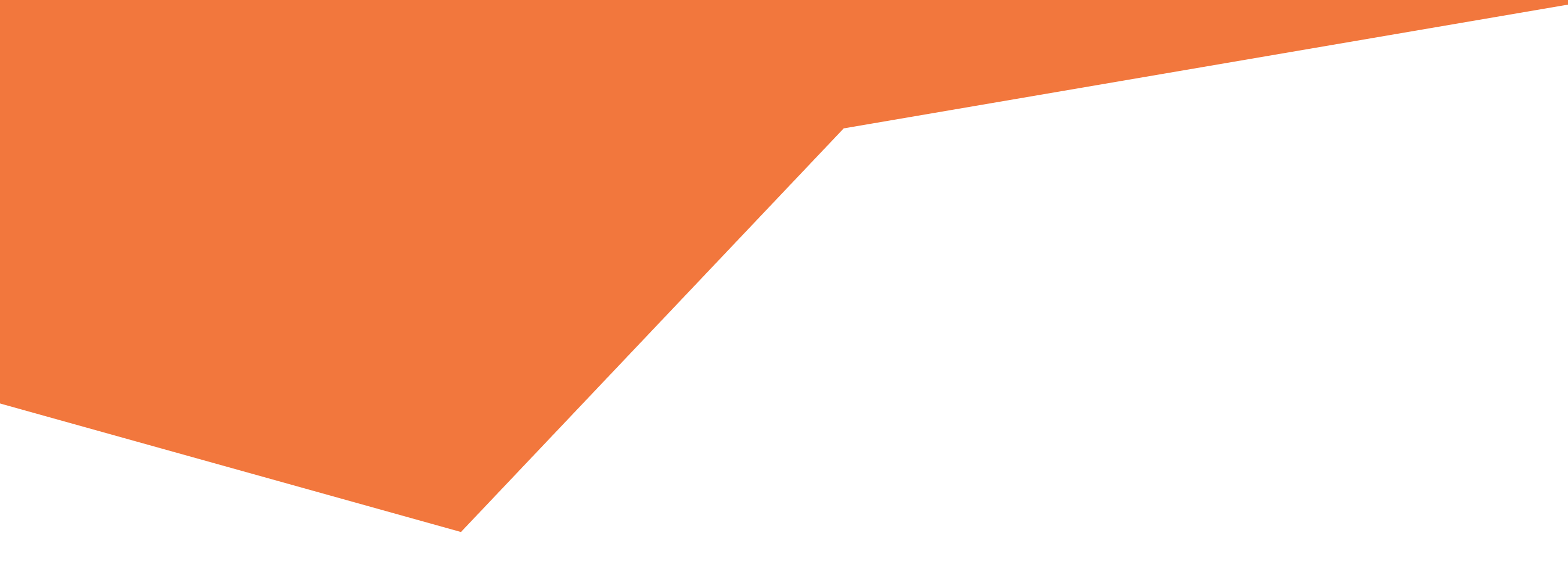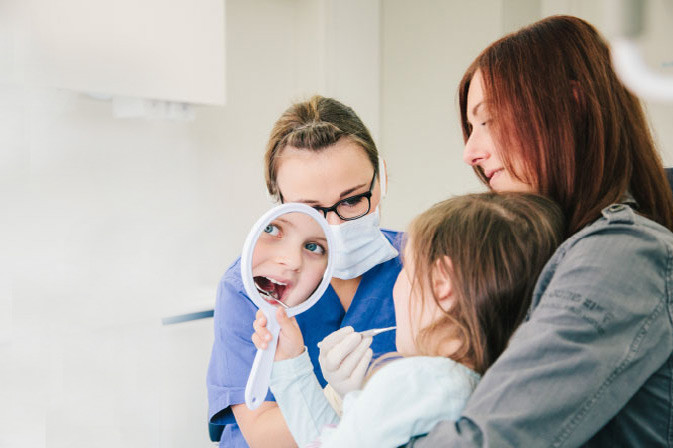

Preventive healthcare
Once or twice a year, your regular preventive check-up has to be done. We examine your mouth for dental decay (caries), periodontitis, and other irregularities, e.g. mucosal alterations, lesions etc.

Individual prophylaxis
Individual prophylaxis
For us, prophylaxis (preventive treatment) is the most important form of treatment – because we care about preserving your teeth.
Our prophylactic measures are tailored to meet your individual needs, i.e. the state of your teeth and/or implants as well as your gums. As part of prophylaxis, it can also be sensible to establish your individual risk for dental decay (caries) and/or periodontitis by means of appropriate tests.
We create an individual “prophylaxis itinerary” for you according to the results of the tests and in cooperation with you.
Depending on the risk for caries or periodontitis, our prophylactic measures consist of professional tooth cleaning, antibacterial coatings and gels as well as individual advice and guidance regarding domestic measures for oral hygiene.
Professional tooth cleaning (PTC)
Professional tooth cleaning comprises the removal of plaque with ultra sound, the gentle cleaning of tooth or implant surfaces using hand instruments, the possible removal of nicotine or tea stains by means of an air-powder polisher, as well as the subsequent polishing of all tooth and/or implant surfaces with special polishing brushes and pastes including final fluoridation.
Antibacterial coating
In order to lower the individual risk for dental decay (or caries) it is possible to apply an antibacterial coating to the teeth. It significantly reduces the concentration of caries-inducing germs for three to six months and thus provides additional caries protection.
Cleaning of prostheses
If you wear a prosthesis, the PTC also includes the cleaning of your prosthesis in an ultrasonic or needle bath with subsequent polishing. In case you do not have any natural teeth anymore, you are welcome to leave your full denture with us for cleaning.
Prophylaxis for children
Prophylaxis for children
Taking care of “our” children is particularly important to us. We want to show them early on that a visit to the dentist is nothing to be afraid of.
Paediatric dentistry
The treatment of our young patients is especially important to us. The earlier your child experiences positive, i.e. anxiety-free situations with us, the better for his or her future “dental life”. We offer all our services in a child-oriented way – starting with early detection examinations and prophylaxis and ending with anxiety-free dental procedures. With our child- and age-appropriate care and treatments, we would like to support not only your children, but also you as a parent so your child can proudly say: “I’m not afraid of the dentist”. The first encounters are especially important for anxiety-free interaction between your child and his or her dentist in the future.
It is important to help children get used to the dental practice and treatment situation in general, as well as the instruments, smells, and noises particularly early on and in a playful way – in an ideal case without the “need for treatment”, i.e. BEFORE their first dental decay! There is also a lot you can do as a parent to help your child have a positive experience when visiting our practice: Take him or her along to your own regular examinations so they can get to know us and the things we do better (including smells, noises etc.). It is also important to avoid words like fear, pain, injection, or drill when you talk about the dentist. VERY IMPORTANT: Never use a possible visit to the dentist as a threat! After all, we want your child to learn that a visit to our practice is just another everyday event, like going grocery shopping.
0-3 years:
1. early detection examination
With the appearance of the first milk tooth, commonly at the age of six months, it is time for the first short visit to our practice. From this point onwards, an infection from caries-inducing bacteria (dental decay) is possible! For this reason, dental care starts with the first milk tooth. During the initial examination we also inform you as a parent or carer about the necessary measures needed for the oral hygiene of your child.
2. early detection examination
The second visit to the dentist should coincide with the appearance of the milk molars (approx. at the age of two). We check whether all the teeth are laid out according to your child’s age and whether there is any indication of an increased caries risk. It is also important that you supervise the dental care of your child. Naturally, we provide you with all the necessary information you’ll need to do so.
3-6 years:
Biannual routine examinations
The primary dentition is now complete. Even though all your child’s teeth are fully grown now, they should be checked and cleaned at least once, better yet twice a year. These routine examinations also help your child to get used to the situation in the dentist’s chair.
Apart from the examination for caries and displaced teeth, e.g. due to extensive use of dummies, we also focus on advising parents on adequate dental care and a good diet for healthy teeth.
6-18 years:
From now on, your child is entitled to the individual prophylaxis for children and youths (IP) twice a year. Both statutory and private health insurances cover the costs.
The IP also includes an introduction to correct dental care. During the IP, we colour the teeth in order to make domestic oral hygiene measures as well as their deficiencies visible, we clean the teeth from tartar and plaque, and fluoridate them. For caries prophylaxis, it may in some cases be necessary to seal the chewing surface of the permanent molars with synthetics.
Diagnostic radiology
Diagnostic radiology
Since it is impossible to look at all areas of the teeth’s surfaces during the examination, we usually also check the state of your teeth and jawbones my means of two small X-rays (bitewing), in special cases with a panoramic tomography of the jaws. Depending on the risk of caries (dental decay) and the state of your gums, this is sensible every two to three years.
Our main focus regarding caries is on the area of the contact points where the teeth touch each other as well as on the fissures and crown edges. With regard to periodontitis or peri-implantitis, we take a look at the shape of the jawbone in order to be able to recognise and treat caries or progressing periodontitis/peri-implantitis early on.
Pregnancy
Pregnancy
Congratulations! But from now on you need to pay attention to several things:
Due to hormonal changes, your gums are more susceptible to infections during pregnancy. During this time, good oral hygiene is particularly important because diseases of the oral cavity may lead to general health problems, whereas infections of the periodontal apparatus (periodontitis) can cause premature delivery. We therefore strongly advise you to come and see us for a preventive examination and for professional tooth cleaning at the beginning of your pregnancy.
- We recommend another professional tooth cleaning approx. four weeks before giving birth. This gives us the opportunity to establish your oral health and answer questions concerning dummies for your child etc. (see also primary-primary prevention) so you can happily enjoy the first exciting weeks with your baby.
- In urgent cases, when dental treatment is unavoidable, this is always possible, although the second trimester of your pregnancy is most suitable. However, comprehensive and predictable dental treatment is not advisable during pregnancy.
- Vomiting can be a particular problem during pregnancy. When it occurs frequently, the regurgitated gastric acid can affect the enamel of your teeth. With the best of intentions, many women immediately grab their toothbrush, only making things worse: By intensively brushing their teeth, they also scrub off the minerals that have been dissolved from the enamel by the acid. We therefore recommend merely rinsing your mouth with water or a mouthwash solution after vomiting and only using a toothbrush after a pause of at least 30 minutes.
Primary-primary prevention:
We have known for quite a while now that caries (dental decay) and periodontitis are infectious diseases. No child is born with caries or periodontitis germs: They are transmitted to your child by the person who care for it. Primary-primary prevention already precludes the transmission of dangerous caries or periodontitis germs from the parents or carers to the child.
In order to minimise the risk of transmitting your germs to your child, it is possible to reduce the amount of bacteria in your mouth by means of antibacterial coatings. It’s only logical: Fewer bacteria mean fewer transmissions! This is especially recommended for parents and/or carers with a high risk of caries or severe periodontitis.


